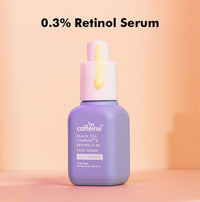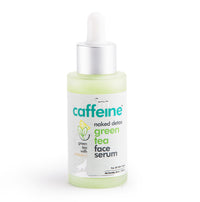Table of content:
|
Introduction
Winter can be tough on the skin. Harsh winters make skincare products ineffective in winter months. Cold air outside and dry heat inside often lead to dryness, irritation, and other skin issues.
Everyone's skin reacts differently to these conditions, so tailoring your skincare routine to your specific needs is essential. Whether you have oily, dry, or combination skin, personalizing your winter skincare routine helps keep your skin healthy and radiant throughout the colder months.
Understanding Your Skin Type
Knowing your skin type is the first step in creating an effective winter skincare regimen. Generally, skin falls into three categories:
Oily Skin: Excess sebum production leads to a shiny appearance and potential breakouts.
Dry Skin: Often feels tight, with flaky or rough patches due to lack of natural moisture.
Combination Skin: Features both oily and dry areas, usually an oily T-zone (forehead, nose, and chin) with dryness on the cheeks.
Sensitive skin: Dermatologically tested to cater to sensei skin types that have pertained issues with skin sensitivity.
Winter skincare requires adaptations to address the harsh effects of cold weather on different skin types. Here’s a more detailed look at managing oily, dry, and combination skin during the winter, along with general care tips:
Winter Skincare for Oily Skin
Gentle Cleansing:
Even during winter, oily skin continues to produce excess sebum. Using a gentle, gel-based face wash can effectively remove excess oil and impurities without stripping the skin of essential moisture. Harsh cleansers may lead to a counterproductive increase in oil production as the skin tries to compensate for the dryness.
Lightweight Moisturization:
Hydration is vital even for oily skin types. Lightweight, non-comedogenic moisturizers that contain hyaluronic acid can hydrate the skin effectively without adding greasiness or clogging pores. This approach maintains essential hydration without exacerbating oiliness.
Controlled Exfoliation:
Gentle exfoliation once or twice a week is beneficial for removing dead skin cells and preventing clogged pores. However, it's crucial to avoid over-exfoliating as this can irritate the skin and trigger an increase in oil production.
Sun Protection:
UV protection is critical year-round. A broad-spectrum sunscreen is essential to protect oily skin from UV damage, which can exacerbate skin issues, even on cloudy days.
Treat Your Skin:
For those dealing with acne or frequent breakouts, using products with natural, anti-inflammatory ingredients can help manage skin issues. For example, an Oil Control Coffee Face Wash might help in managing pore-clogging oil while providing anti-inflammatory benefits.
Winter Skincare for Dry Skin
Creamy Cleansers:
A cream-based cleanser helps dry skin maintain its natural moisture barrier. These cleansers are effective at cleaning while being mild enough not to strip away necessary oils.
Deep Moisturization:
For dry skin, using a rich moisturizer containing ingredients like shea butter and ceramides right after cleansing can lock in moisture, providing an essential barrier against the drying effects of winter.
Humidify Your Environment:
A humidifier in your living or work space can add moisture to the air, helping prevent your skin from becoming too dry due to indoor heating.
Sun Protection:
Sunscreen that also moisturizes protects the skin from UV rays while combating the drying effects of winter weather.
Indulge Your Skin:
Applying nourishing body butters, like Choco Body Butter, can provide an extra layer of moisture, especially beneficial for areas prone to extreme dryness.
Winter Skincare for Combination Skin
Balanced Cleansing
Combination skin needs a cleanser that can address both oiliness and dryness without exacerbating either condition. A harsh cleanser might strip away moisture from dry areas, while a too-mild cleanser might not effectively reduce oil in the T-zone.
Opt for a pH-balanced, sulfate-free cleanser that gently removes impurities and excess oil without disturbing the skin’s natural moisture barrier. Ingredients like glycerin or hyaluronic acid help maintain hydration, while still effectively cleansing the skin.
Targeted Moisturizing
Different areas of combination skin have distinct needs. The oily zones typically require lighter hydration, whereas the dry patches need more intensive moisture.
Use lightweight, non-comedogenic moisturizers (like those containing dimethicone) on oily areas to provide hydration without clogging pores. For dry areas, richer creams containing emollients like shea butter or ceramides can help restore and lock in moisture, improving skin texture and preventing flakiness.
Regular Exfoliation
Exfoliation is key to managing combination skin as it helps remove dead skin cells that can lead to dullness and uneven skin texture, particularly where dry patches are concerned.
Incorporate a New berries brightening coffee face scrub that is a gentle exfoliating product with beta hydroxy acids (BHAs) like salicylic acid or alpha hydroxy acids (AHAs) like glycolic acid. These ingredients help in sloughing off dead skin cells more effectively, promoting cell renewal. Exfoliate 1-2 times a week, focusing more on areas that feel rougher or look duller.
Sun Protection
Sun damage can affect combination skin unevenly, potentially worsening dryness and triggering more oil production as a defense mechanism against UV exposure.
Select a broad-spectrum sunscreen that’s designed for combination skin. Look for formulations that offer matte finishes to manage shine in oily areas while providing enough hydration for dry spots. Products containing zinc oxide or titanium dioxide are typically well-tolerated by various skin types and provide effective protection.
Balance Your Skin
Maintaining the balance between exfoliating and hydrating is crucial for combination skin to enhance its overall health and appearance.
A product like a Coffee Body Polishing Kit can be very beneficial. It usually contains ingredients that exfoliate physically with coffee grounds and chemically with natural acids, while oils in the kit provide necessary hydration. This dual action helps in smoothing the skin’s texture and ensuring moisture is replenished where needed.
General Winter Skincare Tips for All Skin Types
Avoid Hot Water: Use lukewarm water for cleansing to prevent stripping the skin of its natural oils.
Stay Hydrated: Internal hydration is crucial; drinking sufficient water helps maintain skin's moisture balance.
Protect Your Skin: Wear scarves and gloves to shield exposed skin from harsh conditions.
Care for Lips and Hands: These areas dry out quickly; regular application of lip balm and hand cream is essential.
Adjust Your Nighttime Routine: Incorporate heavier moisturizers or facial oils at night to support skin repair and moisture retention during sleep.
Lock in Moisture: For an overnight hydration boost, try our Vanilla Dream Deep Moisturizing Body Butter. It helps lock in moisture while you sleep.
Conclusion
Winter doesn't have to wreak havoc on your skin. Understanding your skin type and adjusting your skincare routine accordingly maintains healthy, glowing skin throughout the season. Personalizing your routine ensures your skin gets exactly what it needs to combat the effects of cold weather.
Our range of products at mCaffeine helps you create the perfect winter skincare routine tailored to your needs.
FAQs
1. What is the best skincare routine for winter for oily skin?
A gentle cleansing routine with a gel-based face wash, lightweight moisturizers, and regular, gentle exfoliation helps manage oily skin in winter.
2. How can I adjust my skincare for winter?
Adjust your skincare by using more hydrating products, avoiding hot water, and protecting your skin from the elements. Tailoring your routine to your skin type is essential.
3. What should I do for winter skin care?
Keep your skin moisturized, use sunscreen daily, stay hydrated, and protect your skin with appropriate clothing. Personalizing your routine based on your skin's needs makes a big difference.
4. Why does my skin get so dry in winter?
Cold air and low humidity levels can strip your skin of its natural moisture, leading to dryness and irritation. Indoor heating can also contribute to dry skin.
5. Can I skip sunscreen during winter?
Sunscreen is important year-round. UV rays can still affect your skin on cloudy or cold days, so applying sunscreen helps protect your skin.











